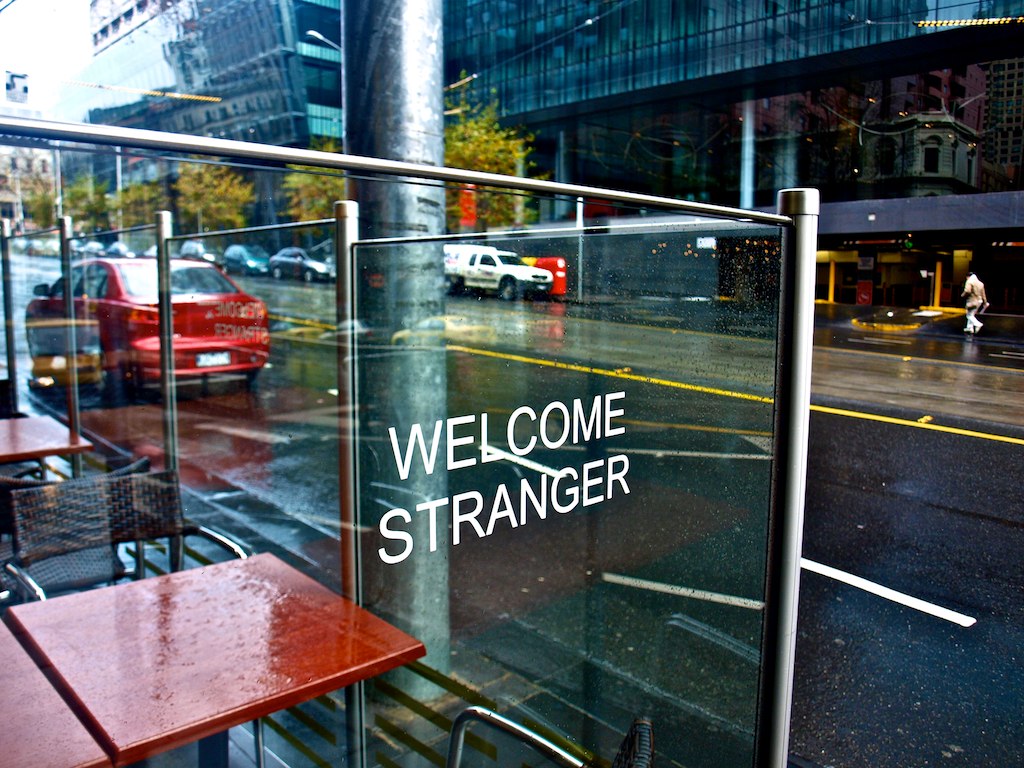Travelers love to talk about how much travel changes them. I know that I’ve heard or read “study abroad changed my life” at least a thousand times. Some people roll their eyes at these sentiments because it is so cliché, but I don’t think that many doubt that travel has such effects. But are you aware that science has proven several real effects that travel has on our brain and cognitive abilities?
One of the most noticeable effects that travel has is that it boosts creativity. For centuries, artists and writers such as Mark Twain have used travel as inspiration for their work and studies by psychologists and neuroscientists are showing that there’s real science behind this inspiration.
Creativity is related to neuroplasticity, which is a term used to describe how the brain is wired. Our environment and habits affect our neural pathways and influence how they grow and function.
This is why we’re so easily able to go on “auto-pilot” and accomplish tasks that we do every day. Everything from getting ready in the morning to our afternoon commute back home are things we’ve done hundreds or thousands of times. Our neural pathways for these activities become established and so our brains are never forced to work harder when doing these acts.
And that’s why travel is powerful.
When you travel you come across new languages, sights, sounds, smells, and tastes. You’re thrust into a new environment in which your brain is forced to figure out how to make sense of things. It’s forced to adapt and problem-solve in new ways. Scientists believe that exposing yourself to these new sensations actually allows the brain to develop new synapses. This helps you to remain sharper, more creative, and develop a deeper sense of cultural awareness and personal growth.

Sometimes it’s almost as if I can feel that happening in real-time. At least for me, when I first arrive in a new city, I get turned around pretty easily and in very busy areas such as in a city center, it just feels entirely overwhelming. But after setting out to do some exploring, things start to slow down for me and slowly come together.
For example, I may learn how to get from my hotel to the city center via the subway, I might try some local cuisine and realize be blown away by the taste of new flavors, and I might interact with some locals and have an unexpectedly engaging and insightful conversation with them. I soon become comfortable in this foreign place and I attribute that to my brain working to make sense of all of the sensory overload. Whether that’s due to new brain synapses, I’m not sure, but it’s a very real effect that I feel when traveling.

The key to receiving this brain revitalization is that you actually need to be immersed within the culture. And this makes total sense. Without a stimulus, there’s no reason why your brain would need to do anything different.
This is like a student who goes to class but just stays fixated on his or her laptop during lectures and debate. There are tons of new ideas being lobbed around by students and professors within the same room as the student, but if the student never engages with the material or discussion, there will be no stimulus forcing the brain to acquire or at least attempt to acquire the new knowledge. Unfortunately, just being present in class doesn’t make you “smarter.”
The same concept applies to travel.
If you travel to a new destination and stay in your nice all-inclusive chain hotel the entire time and only venture out to the pools and beaches predominated by tourists, (i.e., what Americans do in Mexico all the time), you probably shouldn’t expect your brain to be doing too much extra work. I’m not saying there’s anything wrong with those trips (sometimes we need trips just like that), it’s just that it’s not going to get you anywhere in terms of the growth we’re talking about.

This is backed up by Adam Galinsky, a professor at Columbia Business School and the author of numerous studies on the connection between creativity and international travel. “The key, critical process is multicultural engagement, immersion, and adaptation. Someone who lives abroad and doesn’t engage with the local culture will likely get less of a creative boost than someone who travels abroad and really engages in the local environment.”
What’s not clear to me is how long it takes for this process to take place. Or rather, how much engagement is needed for these effects to be felt. I believe that even a handful of encounters where you’re learning the layout of a new city, tasting new foods and flavors, figuring out subway routes, having conversations with locals, and admiring the sights is enough stimuli to effect a cognitive change.
But that’s just based on my personal experience and I couldn’t tell you if science backs that up. I just know that there’s a certain level of sharpness or clarity that follows me home after trips where I’m substantially immersed within a culture, especially if I pick-up on a lot of new things in a short amount of time.

At the same time, I’ve studied/interned abroad three times: Oaxaca, Mexico, Sydney, Australia, and London, UK. There’s no question that spending months in a different location can leave a far more profound effect, especially if you’re venturing into new environments on a frequent basis.
One interesting finding is that “cultural distance,” which is defined as how different a foreign culture is from one’s own, plays a role in the development of creativity. The more foreign a culture is to you, the lower the “creative effect” of travel is (in some people). This has to do with the fact that places that are very foreign to us, are often harder to immerse ourselves in.
This ties in to my question about the effect on time spent abroad. The more time you spend in a foreign place, the easier it becomes to branch out and get immersed, even if that place is initially completely foreign to you in virtually every aspect.
What I’ve always found fascinating is when the place I’m staying at abroad starts to feel like “home.” While living in Australia, I remember commuting into downtown Sydney and being shocked at how “normal” the commute felt to me after several weeks and how truly “at home” I felt at my residence. The same thing happened in London.
At a certain point, it feels like you hit a point of diminishing returns where you feel like you need to venture elsewhere for that needed stimulation, which I think is perfectly normal since that just means that you’ve adapted to your new environment.
Interestingly, even when you’re fully adapted to a location, there’s still room for growth. The research shows that just going to a different local neighborhood (even in your own hometown in your home country) can provide provide a cognitive boost. You might not be fully stepping out of the social comfort of being home, but just strolling through a new neighborhood or nearby city can offer you new sights and experiences, especially if you live in a large city where there are probably large pockets of unexplored urban terrain.
I think it’s fascinating what travel can do for us cognitively. But I think that it underscores the necessity of branching out from your comfort zone. It’s not enough to board that plane and land in an airport of another country. You need to get out and try things, learn things, and talk to locals. You need to stimulate your mind even if it’s quite uncomfortable at first because that’s the only way you’ll get those synapses firing.
Daniel Gillaspia is the Founder of UponArriving.com and the credit card app, WalletFlo. He is a former attorney turned travel expert covering destinations along with TSA, airline, and hotel policies. Since 2014, his content has been featured in publications such as National Geographic, Smithsonian Magazine, and CNBC. Read my bio.

